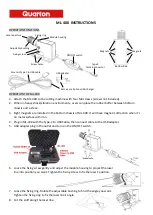Reviews:
No comments
Related manuals for 2075

8100
Brand: ParTech Pages: 14

800
Brand: OfiTE Pages: 24

SourceMeter 2400
Brand: Keithley Pages: 594

System SourceMeter 2601B
Brand: Keithley Pages: 864

S201
Brand: Labgear Pages: 8

SourceMeter 2600B Series
Brand: Keithley Pages: 897

NS110
Brand: Narvitech Pages: 2

HEAT 1
Brand: QALCOMET Pages: 52

PR 300-HV2S
Brand: Hilti Pages: 31

69003
Brand: Seben Pages: 16

AMC-CD2
Brand: Armstrong Monitoring Corporation Pages: 12

Dektak 150
Brand: Veeco Pages: 349

GPO2-AN
Brand: GrainPro Pages: 7

DT5740
Brand: Caen Pages: 50

1410-00
Brand: SATO KEIRYOKI Pages: 2

SENSITRON SMART S
Brand: Halma Pages: 12

ML-400
Brand: Quarton Pages: 2

LAQUA F-74BW
Brand: Horiba Scientific Pages: 2































